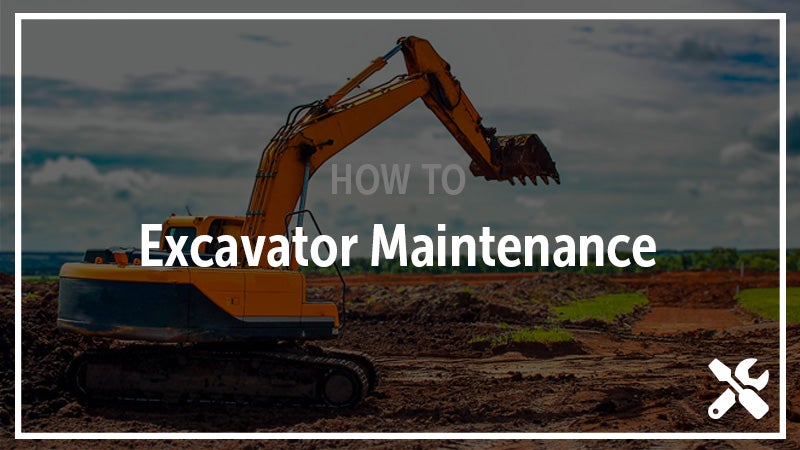Excavators play a critical role in every heavy-duty project—be it construction, mining, demolition, land development, or infrastructure building. From long boom excavators to rock breaker-fitted machines, these earthmoving giants are the backbone of efficiency on job sites. However, consistent performance relies heavily on regular care. Ignoring maintenance leads to increased downtime, costly repairs, and even safety hazards.
Whether you own the machine or rent from a provider like Kasturi Earthmovers, knowing how to care for your equipment can extend its lifespan, improve fuel efficiency, and maintain high productivity.
This blog covers the top 20 excavator maintenance tips that every contractor, site engineer, and operator should follow to ensure their machine runs smoothly.
🔧 1. Perform Daily Walk-Around Inspections
Before starting the engine each day, walk around the excavator and visually inspect for leaks, damaged parts, loose bolts, or fluid puddles. Early detection helps avoid major failures during operation.
🛢️ 2. Check and Top Up Fluids
Monitor levels of engine oil, hydraulic oil, coolant, and fuel. Running your excavator with low or contaminated fluids can severely damage internal systems.
🚜 3. Clean the Undercarriage Regularly
Excavators, especially crawler models, collect debris under the tracks. Daily cleaning prevents premature wear and ensures smoother track movement.
⚙️ 4. Maintain Proper Track Tension
Loose or overly tight tracks can lead to poor handling, slippage, or accelerated wear. Refer to manufacturer guidelines to adjust track tension accordingly.
🧴 5. Lubricate All Pivot Points
Excavators have numerous joints, bushings, and pivots. Lubricating them daily reduces friction, enhances performance, and prevents expensive part replacements.
💧 6. Inspect Hydraulic Hoses and Lines
Hydraulic failure can bring operations to a halt. Check hoses for cracks, swelling, or leaks—especially in high-pressure areas like arms and booms.
🧃 7. Replace Filters on Time
Clogged or old filters (oil, fuel, hydraulic, air) restrict performance and can contaminate internal systems. Replace them according to machine hours or site conditions.
🔋 8. Monitor Battery Health
Excavators often operate in harsh weather conditions. Check terminals for corrosion, test battery voltage, and ensure proper charging for uninterrupted starts.
🌬️ 9. Keep Cooling Systems Clean
Overheating is a silent killer of engines. Clean the radiator, inspect the fan belt, and ensure coolant is at optimal levels to regulate engine temperature.
🌫️ 10. Clean or Replace Air Filters
Dusty environments quickly clog filters, restricting engine airflow. Inspect air filters daily and clean or replace as needed for optimal combustion.
🪛 11. Tighten Loose Nuts and Bolts
Vibrations from constant use can loosen hardware. Make it a habit to inspect and tighten critical bolts—especially in high-stress zones like the boom and undercarriage.
🏗️ 12. Inspect Boom, Arm, and Attachments
Long boom and breaker-equipped machines must be inspected for stress cracks, fatigue, and pin wear. Structural damage can be dangerous and costly.
🛋️ 13. Keep the Operator’s Cabin Clean
A clutter-free cabin improves operator focus and safety. Clean interiors also help detect fluid leaks, electrical issues, or foul odors early.
👷 14. Train Operators
Proper training reduces misuse and improves machine longevity. Trained operators also notice problems earlier, helping prevent breakdowns.
📊 15. Log Hours Accurately
Don’t guess your service intervals. Use the hour meter to track usage and plan maintenance tasks like oil changes and filter replacements accordingly.
🪙 16. Use OEM Parts and Quality Fuel
Cheap or counterfeit parts can cause irreversible damage. Stick to genuine filters, hoses, and lubricants, and use clean, high-quality fuel to avoid system contamination.
💡 17. Check Electrical Wiring
Exposed or chewed wiring (especially on remote sites) can affect critical functions like ignition, lighting, or diagnostics. Inspect connections regularly.
🚚 18. Park Properly When Not in Use
Avoid parking in muddy areas or under trees where falling debris or moisture can harm the machine. If idle for long, disconnect the battery and use covers.
📅 19. Follow a Preventive Maintenance Schedule
Don’t wait for problems to arise. Schedule periodic service checks with qualified technicians who can inspect internal systems, recalibrate sensors, and update software.
🧠 20. Use Telematics and Monitoring Systems
Modern excavators are equipped with monitoring systems that report fuel usage, temperature, and service alerts. Use them to stay ahead of any mechanical issues.
💼 Whether You Rent or Own—Maintenance Matters
At Kasturi Earthmovers, we provide well-maintained excavators on rent, including long boom and rock breaker-equipped machines. Still, we advise all renters and owners to follow proper maintenance practices. Well-maintained excavators are more fuel-efficient, safer, and more productive—especially on long-running projects like mining, breakwater construction, or large-scale demolition.
📞 Need a Well-Maintained Excavator on Rent?
Choose Kasturi Earthmovers for reliable machines, expert support, and flexible rental terms.
📱 Call Us: 9999124242
📧 Email: info@kasturiearthmovers.com

